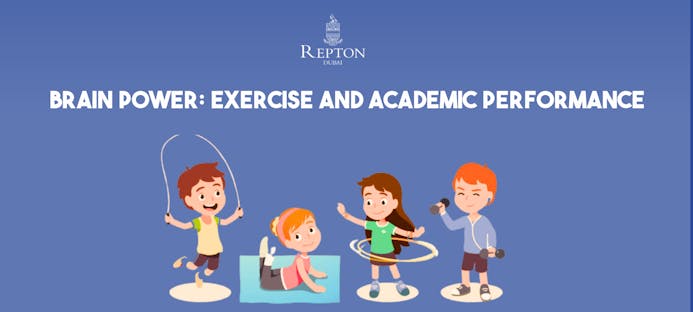In the month of the Dubai 30×30 challenge and a spotlight on physical activity and healthy lifestyles I wanted to write to you about the science of exercise and academic performance as well as taking the opportunity to champion the transformative power of exercise and it’s impact on executive functioning.
Neuroscience and Biology show us that exercise has the power to cue the building blocks of learning in the brain; affect our mood, anxiety, and attention; it can guard against stress and can reverse some of the effects of aging in the brain. The relationship between food, physical activity, and learning is hardwired into our brain’s circuitry and the power exercise has on our children’s academic progress is significant, and often under-represented in academic contexts.
Exercise improves learning on three levels: (1) it optimises your mind-set to improve alertness, attention, and motivation, (2) it prepares and encourages nerve cells to bind to one another (supporting the ability to log new information) and (3) it spurs the development of new nerve cells from stem cells in the hippocampus.
Researchers have demonstrated that exercise creates a brain that is ready, willing, and able to learn. For our Reptonians wanting to reach their full potential, they should harness the power of exercise in their everyday habits and we as teachers and parents must consistently act as the champions of this positive relationship between the mind and the body.
One of the prominent features of exercise, which is sometimes not appreciated in studies, is an improvement in the rate of learning and it suggests that if you are in good shape, you may be able to learn and function more efficiently. Evolutionary science also suggests that our body is designed to be pushed, and in pushing our bodies we push our brains too. I challenge our Reptonians to bring this mantra into their exercise habits so they reap the benefits both academically and emotionally.
It is also becoming apparent that some of the world’s top performing companies are prioritising employees’ wellbeing as well as carving out critical opportunities for exercise in the workplace, whether this is at their own gym or creating flexible working patterns that allow colleagues to train during the day. Successful companies will also recognise the power of daily exercise on employees’ performance and productivity. Within the school context, excellent attendance and participation in PE lessons, training sessions, fixtures and ECAs will contribute to our Reptonians’ academic performance and overall wellbeing.
Exercise optimises the plasticity of our brain, and our brains are constantly being re-wired. Brain scans have shown that when we learn a new word for example, the prefrontal cortex and hippocampus light up, and the hippocampus has an important role in forming memories, therefore making it vital to learning. A human research study found that people learn vocabulary words 20% faster following exercise than they did before exercise.
The brain is actively growing and changing until we are about twenty five and if we do things that are intense enough to force our brain to change, we will improve our executive functions (even after twenty five!) and so seeking out new cognitive challenges, learning a new language, or reading new content as some examples can shift neuro pathways in your brain and are excellent examples of neuroplasticity. Couple this with daily exercise, particularly regular aerobic exercise, will set us up for growth, academically and perhaps emotionally.
As Reptonians, we want every student to excel academically and if we relate this research to our educational journey, including exercise before learning, revision, homework, or their exams could give them the brain power to achieve higher levels of attainment. Regular exercise in their weekly routine will not only harness the power of physical activity on their academic capability but give them the added benefits of other mind-body connections, such as confidence, improved wellbeing, resilience and friendship.
Perhaps all of us could harness the power of exercise more this year, not just this month?
Ms Stephanie Pride
Assistant Headteacher, Repton Dubai

